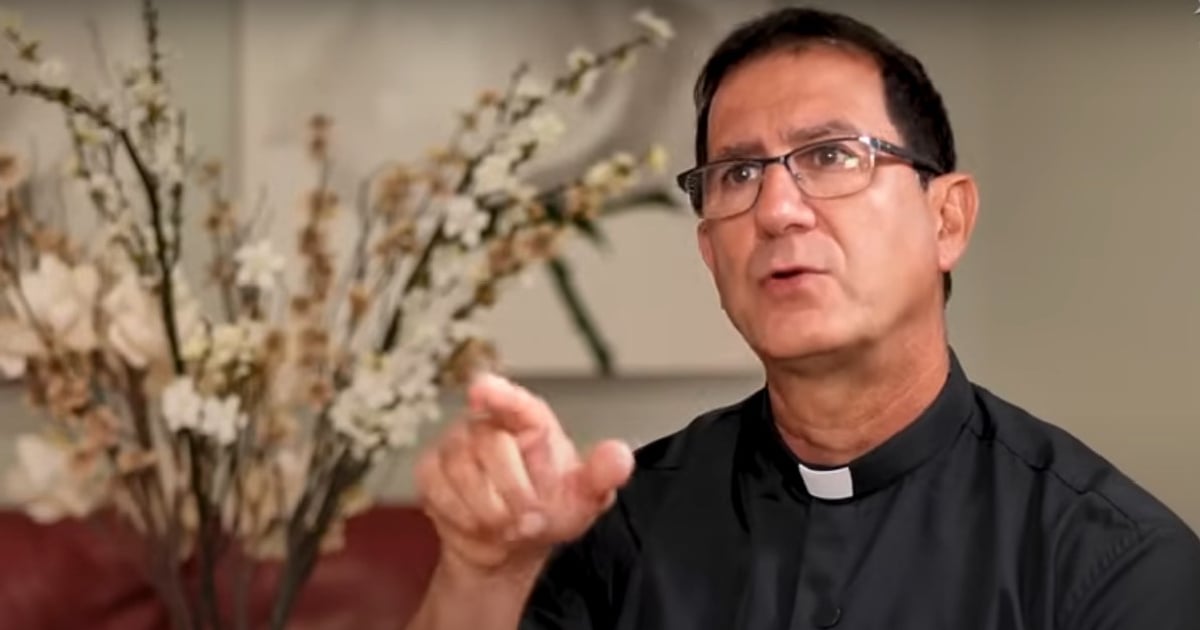Alberto Reyes Pías, a vocal critic of Cuba's dictatorial regime within the Catholic Church, made it clear on Tuesday that he has not left the island and has no plans to do so. Responding to persistent rumors about his departure, Reyes stated, "Many people have been asking if I've left Cuba. This surprises me. I haven't left, nor do I have the slightest intention of doing so," he clarified in a Facebook post. Reyes frequently uses this platform to share profound reflections on the country's situation and offer encouragement to the Cuban people amid the hardships caused by the government’s failed policies.
The priest from the Archdiocese of Camagüey quickly received support from numerous followers and parishioners, who hailed him as a "brave Cuban" and a "pride of the Catholics." They praised the clarity of his analyses published on social media and expressed admiration and respect for his stance and priestly work.
On New Year's Day 2025, Reyes shared a vision for Cuba's future, expressing hope for a time when no one feels compelled to leave the country. Drawing inspiration from Martin Luther King Jr.'s famous "I have a dream" speech, the priest emphasized Cuba's need for a radical transformation toward freedom, prosperity, and reconciliation, aiming to be a nation "where no one wants to leave and everyone wants to come to live."
Reyes called for hope and revealed his dream of a Cuba where poverty and scarcity are relics of the past, and joy and progress become everyday realities. He envisioned a country free from political prisoners, where mothers and wives do not have to face violence for demanding freedom for their loved ones. He expressed his desire for a justice system grounded in respect, not repression, where freedom of expression is a reality, and everyone can engage in public debate without fear.
Recently, the priest spoke out about the release of 553 political prisoners in Cuba, a move announced by the Castro regime following negotiations with the United States mediated by the Vatican. He criticized the "blackmail" by Cuban authorities, who use prisoners as bargaining chips "to sustain the continuity of wrongdoing."
"Political imprisonment is, to begin with, a violation of individuals' personal freedom. There should be no political prisoners, but using them as commodities ignores not only their right to free expression but also their inherent dignity and value as human beings," he asserted.
Reyes raised several questions following the announcement: "What will happen to those who will not be released? If this is truly a 'gesture of goodwill,' why isn't it applied to all? I also wonder, what will happen to those who have been released? Will they be forced to leave the country, whether they wish to or not? Will they be allowed to reintegrate into society peacefully, or will their lives be made unbearable?"
In a pointed and precise text, the clergyman urged the Cuban government to "acknowledge citizens' right to publicly express their opinions, even if those opinions include a desire for systemic change," "cease repression and violence against those who choose to protest peacefully by any means," and "recognize the people's right to political diversity, healthy multiparty systems, and the ability to define their preferred political system at the ballot box."
Alberto Reyes: A Voice for Change in Cuba
Why does Alberto Reyes refuse to leave Cuba?
Alberto Reyes refuses to leave Cuba because he remains committed to advocating for change and offering hope to the Cuban people amidst the hardships they face.
What vision does Alberto Reyes have for Cuba's future?
Alberto Reyes envisions a future where Cuba undergoes a radical transformation towards freedom, prosperity, and reconciliation, becoming a place where people want to live rather than leave.
What was Reyes' reaction to the release of political prisoners in Cuba?
Reyes criticized the Cuban government's decision to use political prisoners as bargaining chips, questioning the motives behind their release and the conditions for those who remain incarcerated.
